Tooth sensitivity affects a large proportion of the population and can vary from mild to severe. Sometimes it may only involve one or two of your teeth, other times your entire mouth can be affected.
It might be an intermittent problem but, in some cases, the problem is constant and can make eating and drinking a real problem.
We take a look at what might be causing tooth sensitivity and how to manage it in the best way possible.
How teeth work
Your teeth are able to feel heat and cold, sweet and sour because each tooth has a nerve and blood vessels that are housed within the root canal and pulp chamber.
The bulk of your tooth is made up of dentine. This dentine consists of millions of little tubes that contain a fluid, which moves when stimulated by temperature and/or chemical changes.
The movement of this fluid is what stimulates the nerve and provides feeling to your tooth.
When all is well, your root dentine should be tucked away below gum level or within the bone, while the crown dentine should be covered by a thick layer of enamel, which is the hardest substance in the human body.
If this is the case, you will feel heat and cold, but you won’t usually have sensitivity issues.
However, if you suffer from tooth sensitivity, whether mild or severe, it usually results from a problem with one or more of the structures that keep the dentine insulated from the heat, cold, sweet and sour. Sometimes it can also be caused by a problem with the nerve.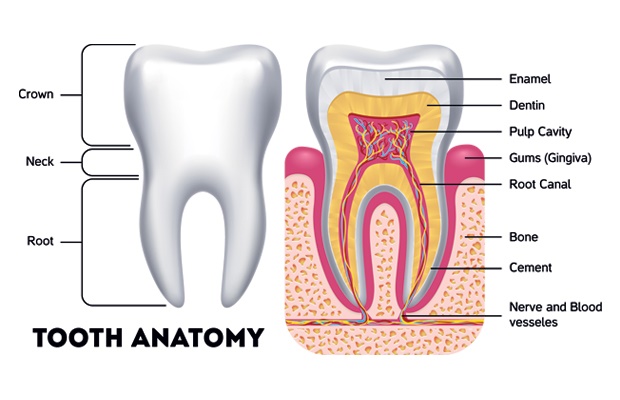
When it’s a crown or enamel issue
Your tooth enamel is the hardest substance in the human body and covers the crown of your tooth, which reaches down to the normal, healthy gum line. It has no nerve or blood supply and cannot heal or repair like dentine and bone.
Enamel is formed, along with the rest of your tooth, when the tooth started to develop in your jawbone when you still had baby teeth.
When your enamel becomes damaged, it does not insulate the dentine tubes properly. The result? You may experience tooth sensitivity.
Common causes of enamel damage
There are a number of causes of enamel damage – here are four common ones:
1. Abrasion
This is usually caused when you brush your teeth too hard, especially if you use a hard brush and/or an abrasive toothpaste.
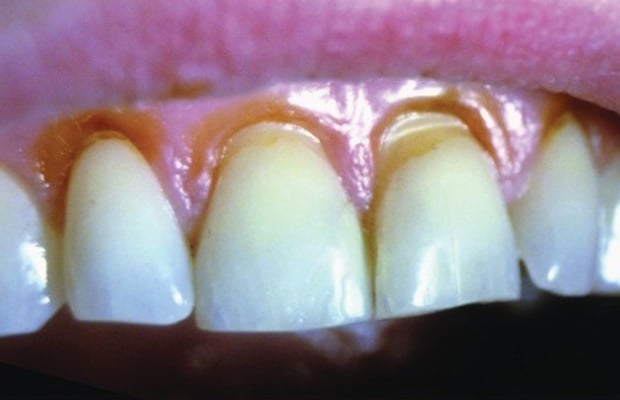
2. Erosion
Erosion is often caused by frequent or continuous exposure to acidic substances. These include fizzy drinks (even sugar-free ones and sparkling water), certain fruit (especially citrus) and fruit juices, sports drinks, and food or drinks that contain a lot of sugar. Some medications, especially aspirin, are acidic – people sometimes apply aspirin to their teeth and gums to treat toothache and sensitivity issues. Stomach acid can also have a detrimental affect your enamel. If you suffer from reflux or vomit frequently (pregnant women or chemotherapy patients, for example), the hardness and/or thickness of the enamel can be damaged.
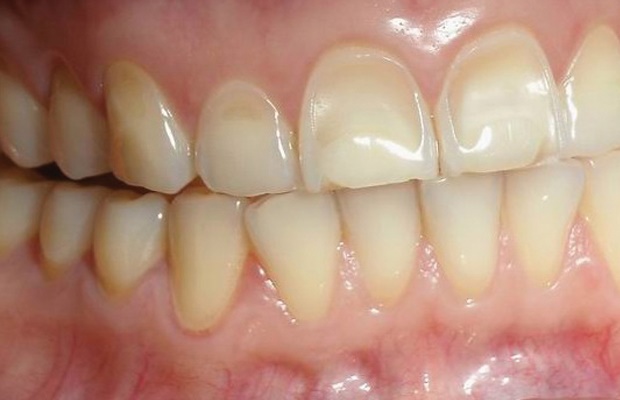
3. Attrition
Another common cause of enamel damage, attrition occurs from grinding your teeth (bruxism).
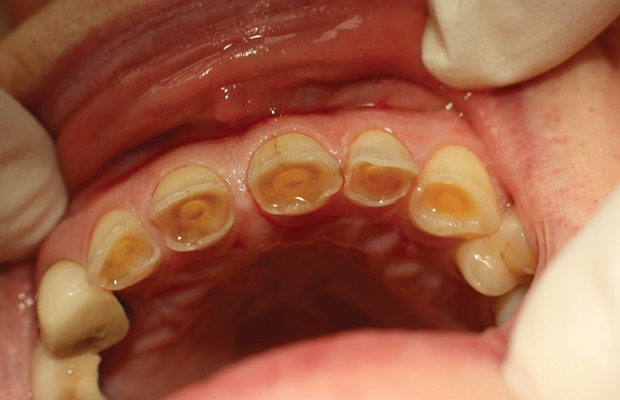
This is an extreme example of enamel damage due to grinding – the yellow areas are exposed dentine.
4. Tooth decay and cavities
Not only painful, tooth decay can also damage your enamel. Sometimes these cavities are so small or between teeth that they can only be seen on an X-ray. It is imperative to visit your dentist regularly so that they can X-ray your teeth to make sure you don’t have any cavities forming between your teeth or under existing fillings and crowns.
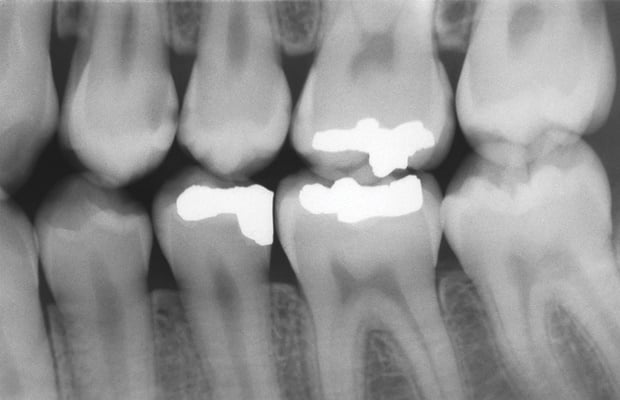
This dental xray shows some metal fillings, which appear white on the film and some decay (the dark areas) between two of the top teeth – these cavities would not be visible during a routine checkup and can often be the cause of sensitivity.
Factors we can't control
Some people are lucky to be born with really hard enamel. This is largely due to their diet and the fluoride content of the water they drank as youngsters.
Untreated ground water in some rural areas may contain high levels of fluoride and other minerals, which results in harder, more resistant enamel. This in turn results in less enamel damage in later years and a lower risk of developing tooth decay and/or sensitivity.
Read about other causes for sensitive teeth here.
Image credits: iStock, Wikicommons




 Publications
Publications
 Partners
Partners











